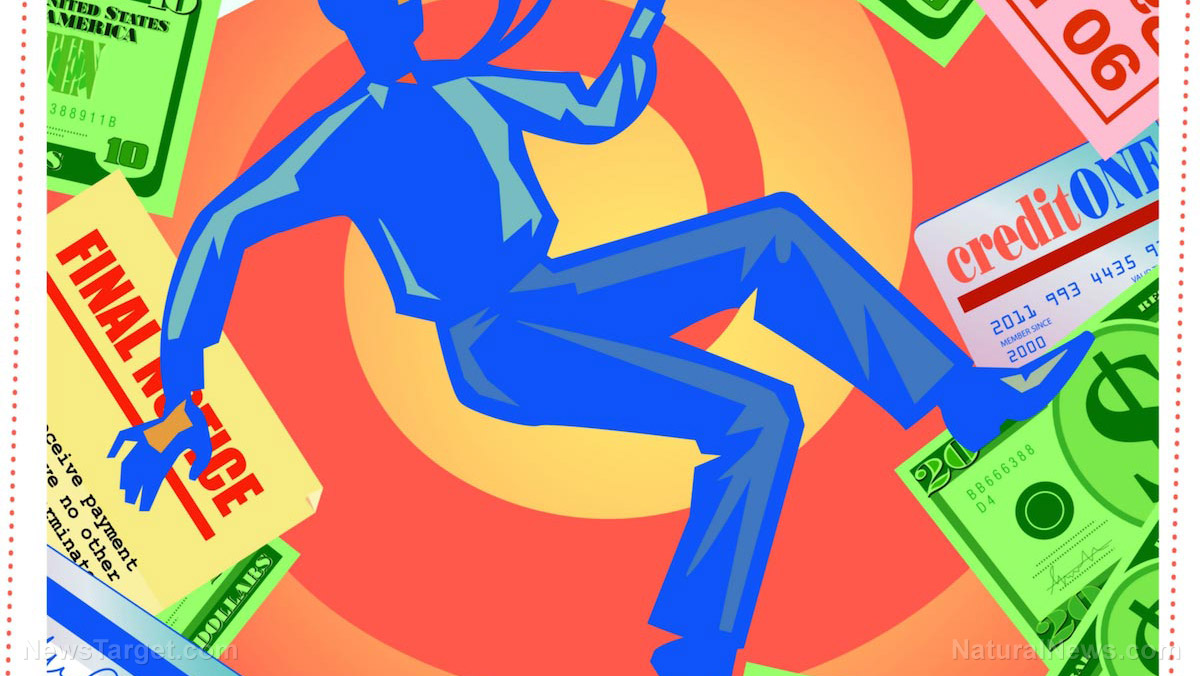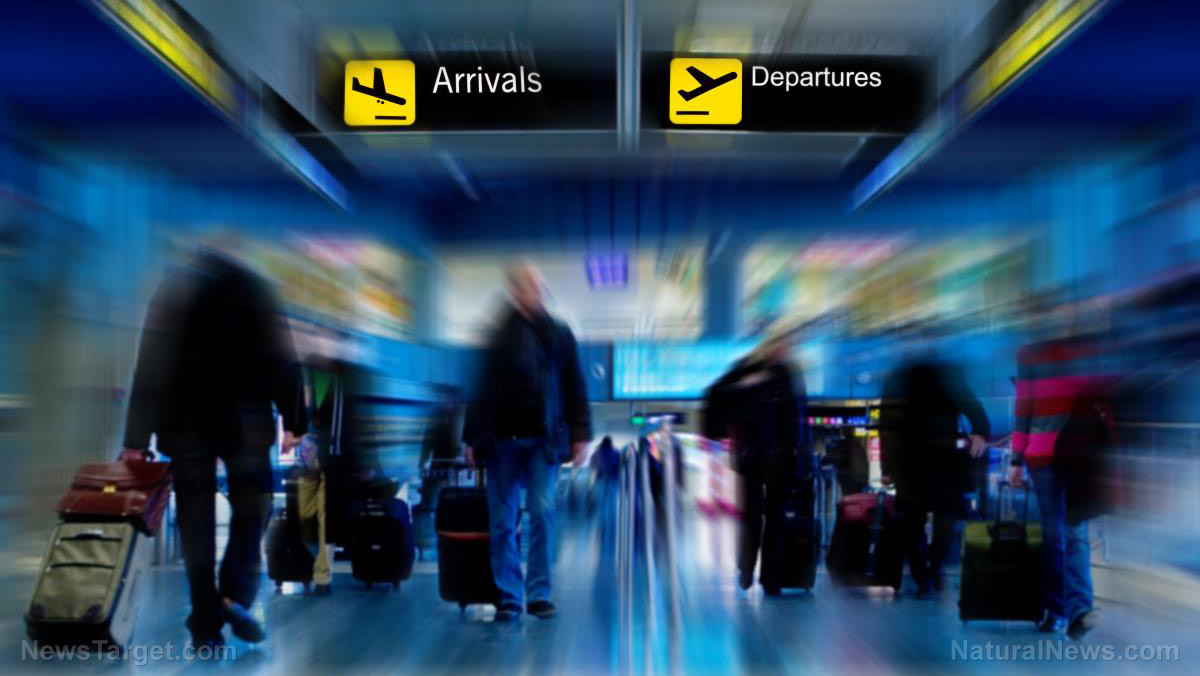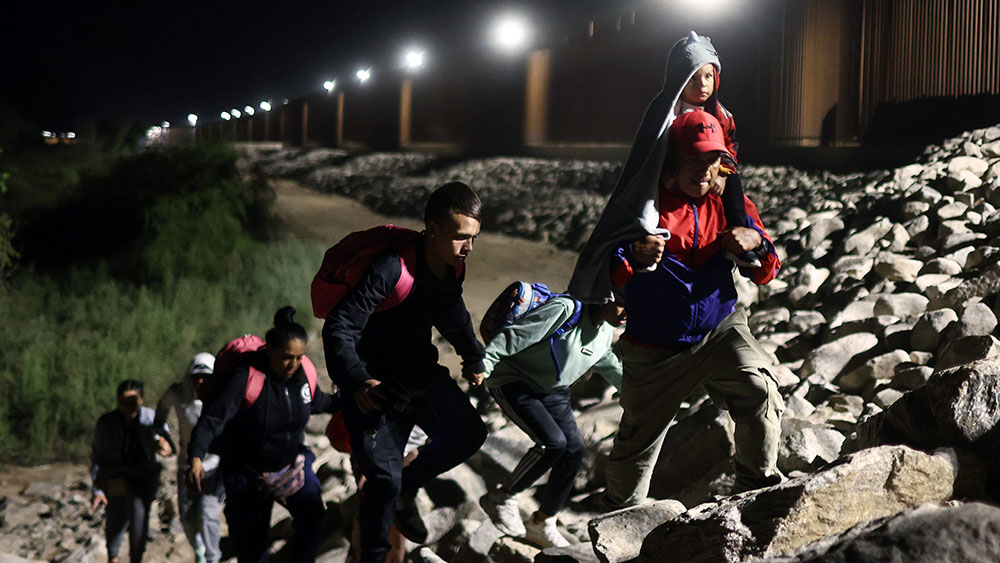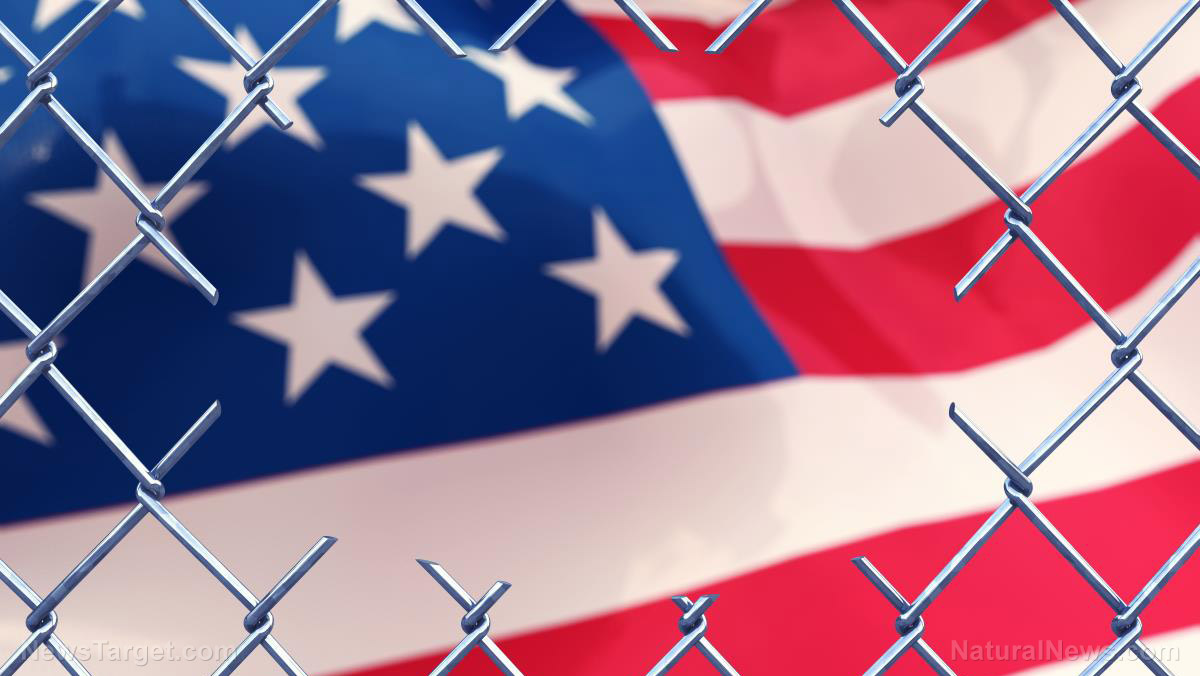Rampant shoplifting is forcing retailers like Walmart and Target to LOCK UP essential products
01/31/2024 / By Zoey Sky

Because of the increasing problem of shoplifting across the U.S., major retailers like Walmart and Target have locked up essential items such as underwear and socks. The preventive measure emphasizes the severity of theft issues affecting retailers throughout America, with company losses amounting to staggering billions of dollars.
For the last few years, shoplifting has become a growing concern for retail giants. Cases have skyrocketed and forced retailers to enforce new yet questionable security measures, like locking up basic essential items. (Related: Organized retail crime, not just shoplifting, is surging across the U.S. with dangerous and costly consequences.)
The increasing cases of shoplifting incidents have also caused significant financial losses for retailers.
According to the National Retail Federation (NRF), shoplifting accounted for $49.9 billion in losses in 2019 alone. This amount has forced retailers to reevaluate their security measures and take action.
Customers annoyed by long wait times
While the locking up of essential items may help discourage shoplifters, it has also affected consumers negatively.
If a store locks up certain products, there will be longer wait times for assistance at the cash register. Locking up items also inconveniences customers because they have to ask store employees for help unlocking items, which has caused frustration among shoppers.
In turn, this frustration has resulted in a decline in customer satisfaction and could potentially drive customers to look for more convenient alternative shopping options.
The increase in shoplifting incidents can also be linked to several factors, such as the rise in organized retail crime and the influence of social media on encouraging such behavior. Others also claim that the lack of consequences for shoplifters has contributed to the ongoing problem.
The decision to secure everyday essentials like underwear has surprised consumers, especially in California’s Bay Area where the measure has been prominently enforced.
Local officials like Councilmember Cesar Zepeda of the Richmond City Council have expressed concerns that these measures could potentially cause higher costs, longer wait times and traveling longer distances for residents who are shopping for basic needs.
The NRF has reported a rise in organized theft, with seven out of 10 retailers experiencing an increase in recent years. This trend has prompted a demand for more stringent legislation against those profiting from retail crime.
The move by Walmart and Target emphasizes the significant impact of shoplifting on retailers and the well-meaning but inefficient measures being taken to address this issue.
Governors respond to retail theft crisis
California Gov. Gavin Newsom has responded to the crisis of retail theft and auto burglaries by proposing new laws aimed at expanding criminal penalties for those involved in these crimes. In 2022, Newsom began new legislation and an organized retail crime task force to address shoplifting.
This legislative push mirrors the urgency felt by both businesses and lawmakers to resolve the increasing losses and protect the future of the retail industry.
Newsom’s proposed laws and the actions taken by retailers also point to the severity of the crisis and the need for immediate measures to address it.
Meanwhile, New York Governor Kathy Hochul has announced plans to spend $40 million to address shoplifting. Over 50 percent of the proposed budget will go to the New York State Police.
Hochul’s retail theft fighting plan will funnel $25.2 million in new funding to the state police, $10 million to district attorneys and $5 million to local law enforcement.
Additionally, the package offers a $3,000 tax credit for shop owners who pay more than $12,000 in yearly security expenses, capped at $5 million total in the budget.
However, one advocate for merchants advised that Hochul’s proposal is only a “half-step” and that it isn’t enough to boost criminal penalties to dissuade serial shoplifters.
Nelson Eusebio, a leader with the National Supermarket Association and the Collective Action to Protect Our Stores Coalition, explained that more funding should be reserved for local cops and defense attorneys instead of the state police, which has little to do with street crime in New York City and other localities.
The frustration experienced by customers facing delays of at least 40 minutes to access basic items while shopping highlights the gravity of the situation.
Visit Collapse.news to learn more about other businesses enforcing stricter security measures due to skyrocketing crime rates.
Watch this clip as Health Ranger Mike Adams talks about American poverty spreading as shoplifting also affects Dollar Tree stores.
This video is from the Health Ranger Report channel on Brighteon.com.
More related stories:
BAD APPLE: NYC shoplifting reports hit record levels for second straight year.
Retailers across state of New York losing $12M daily to RETAIL THEFT.
More people in the U.K. are shoplifting food and selling it on the black market.
Sources include:
Submit a correction >>
Tagged Under:
anarchy, anti-shoplifting plans, big government, Bubble, California, chaos, Collapse, crime, cult, debt collapse, economic riot, finance riot, grocery, insanity, law enforcement, market crash, national security, New York, organized crime, panic, products, retail theft, shoplifting, target, theft, Walmart
This article may contain statements that reflect the opinion of the author
RECENT NEWS & ARTICLES
COPYRIGHT © 2017 CHAOS NEWS




















